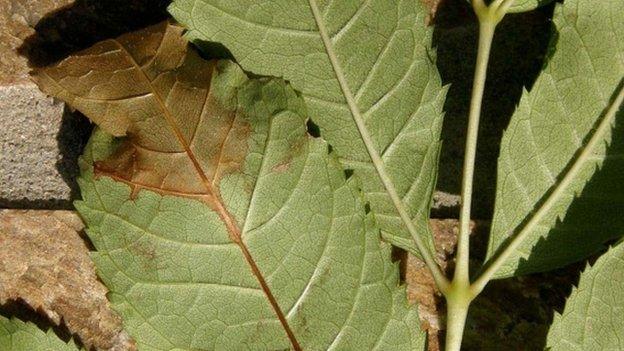'Not enough trees are being planted', woodland bodies say
- Published
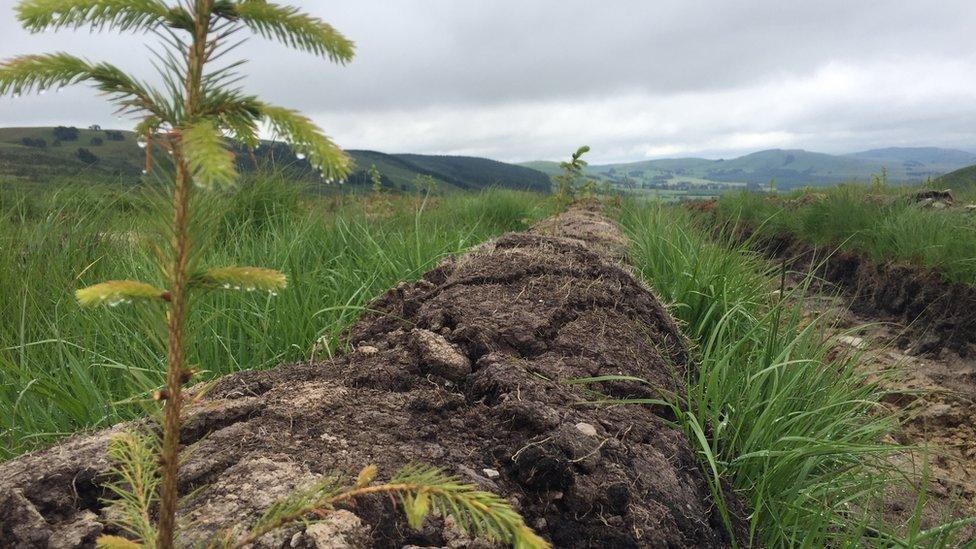
Not enough trees are being planted in Wales and the Welsh Government needs to do more to meet targets, woodland organisations have said.
The Wales Climate Change Strategy, published in 2010, contains an aspiration to create 2,000 hectares of new woodland every year between 2010 and 2030.
It is seen as a way to help Wales meet its carbon emission reduction targets.
Ministers said they were committed to increasing new trees in Wales.
The Woodland Trust said Wales had not met its tree planting objectives and had failed to address the need for them in the landscape to deliver key environmental, public and economic gains.
"Tree planting in Wales has fallen off a cliff," a spokesman said.
"We are seeing the lowest tree planting levels in a generation, only 100 hectares in two of the last three years, showing the failures of Welsh Government to meet the already weakened aspiration of 2,000 hectares of new woodland per year until 2020."
The Welsh Government is under pressure from several sides to be more ambitious.
Wales has planted comparatively little woodland cover compared with Scotland.
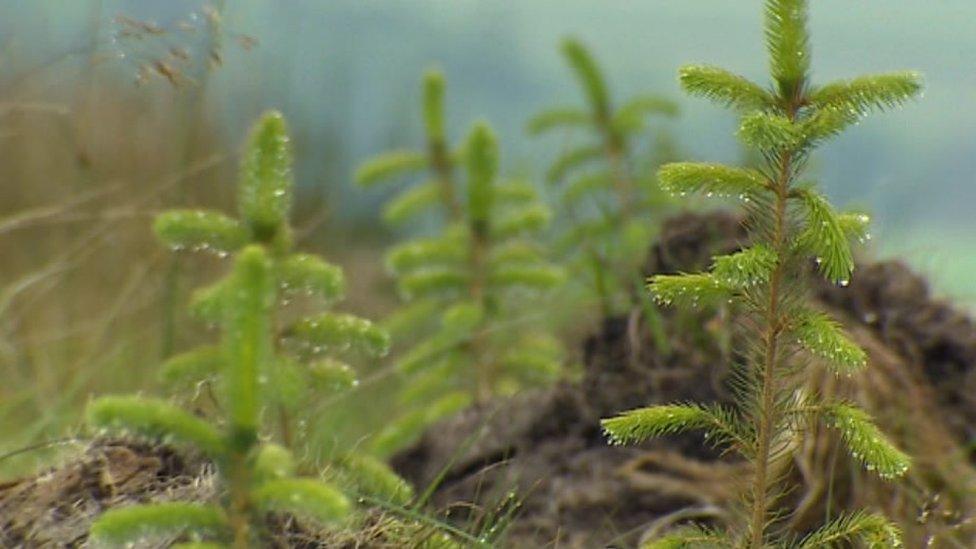
Both governments have ambitious targets, but many woodland organisations feel more needs to be done to deliver these promises in Wales.
Forest industry body Confor, said it is worried about the "catastrophic decline" in soft wood over the last 15 years.
National manager for Wales, Martin Bishop said: "The lack of public support for tree planting is one reason why we have not achieved very much."
He said a complicated, slow and ponderous regulation process was also causing problems.
"We have no appetite in Wales to see land use change and we seem to want to preserve everything we have as it is in perpetuity," he added.
"We will not achieve the 1000 ha we have funds for, unless something is done about the regulatory process. Wales seems to want to put in even more regulation than anyone else."
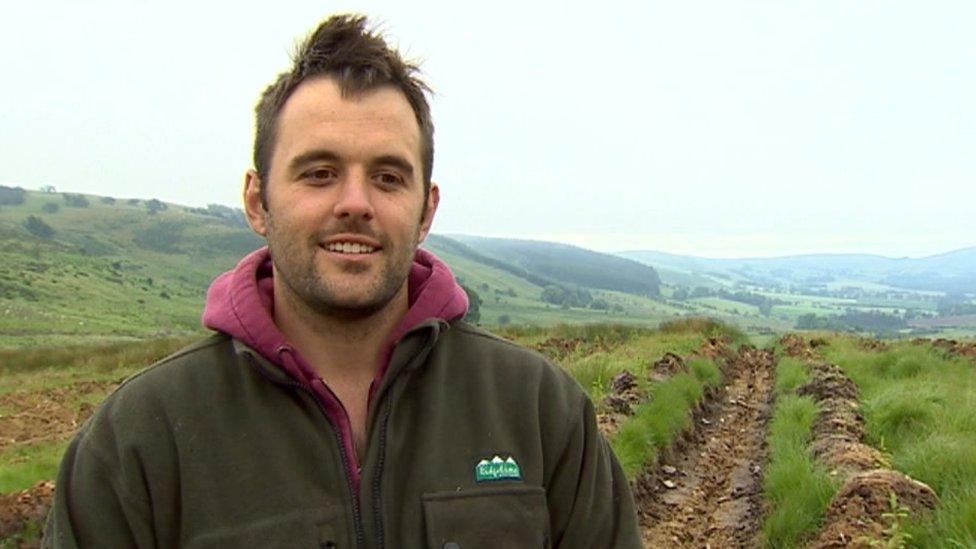
Farmer Jack Lydiate believes cultural attitudes have created a barrier
In Abbeycwmhir, Powys, farmer Jack Lydiate has participated in a farm diversification project to plant Wales' largest new forest.
At 48 ha, it is a fraction of the Welsh Governments 2,000 ha yearly target.
Mr Lydiate said: "I'm looking towards a sustainable future for myself and my family. I know where my business is going to be over the next 30 to 40 years due to the revenue from the trees.
"How many people can say that about their stock?
"It's hard, because there's a lot of old school thought out there. People don't want to take good land away from their stock," he said.
Scheme facilitators Farming Connect are optimistic that with the increasing need, more people will turn to planting trees.
Geraint Jones, its forestry technical officer, said: "We import over 60% of our trees into this country, which will increase over the next few years as particular trees become more rare.
"It's therefore vitally important that we get this message across, that tree planting is important looking towards the future, especially at a commercial level."
A Welsh Government spokesman said: "We want to see more trees and woodland in Wales.
"We are working with Natural Resources Wales to improve the way the various regulatory processes are implemented to protect important habitats while also increasing new woodland."
- Published13 November 2016
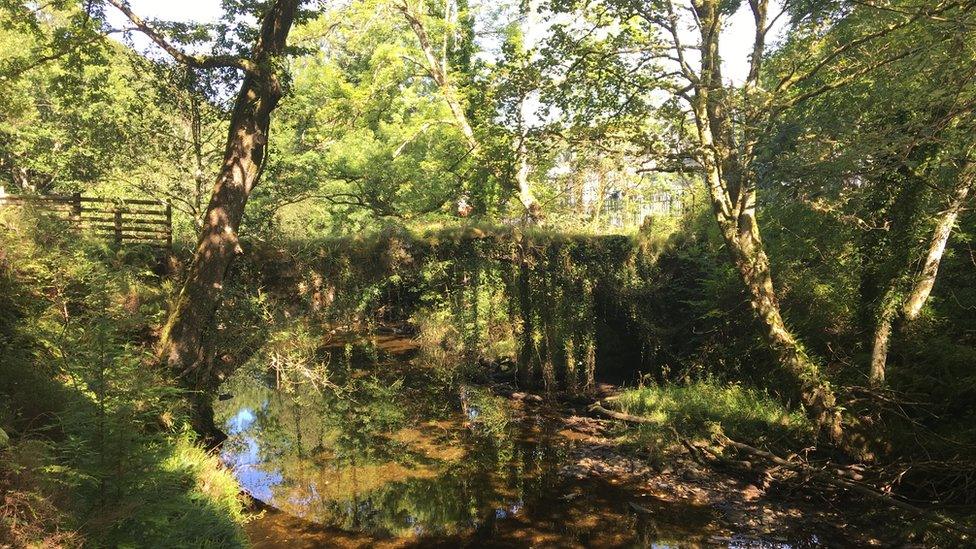
- Published21 March 2017
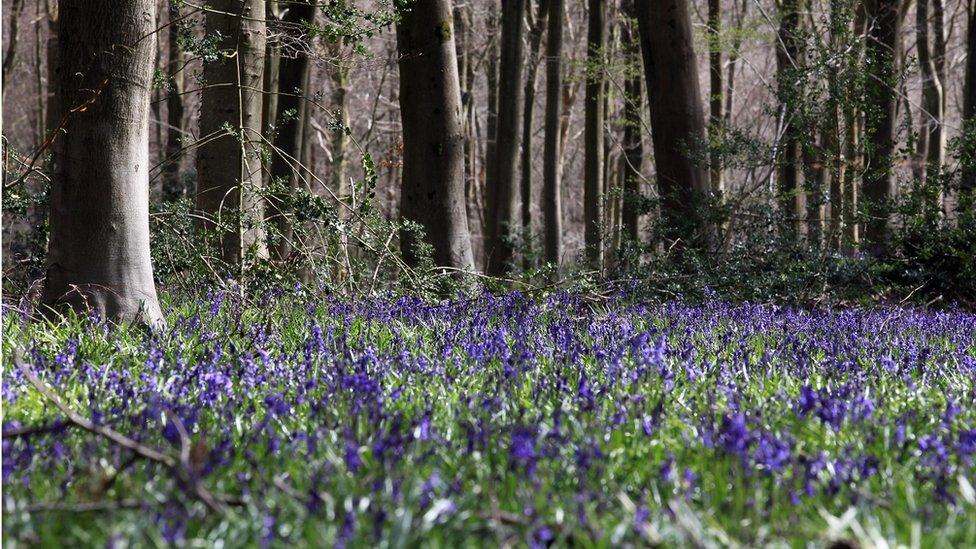
- Published1 August 2015
